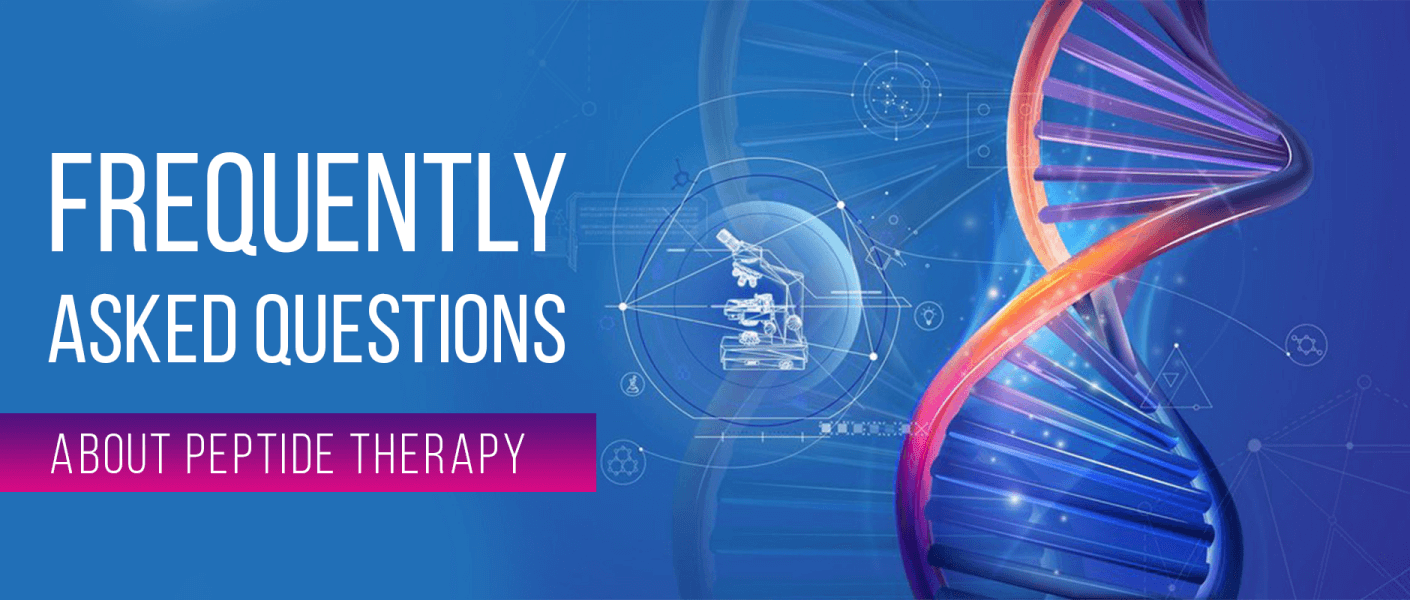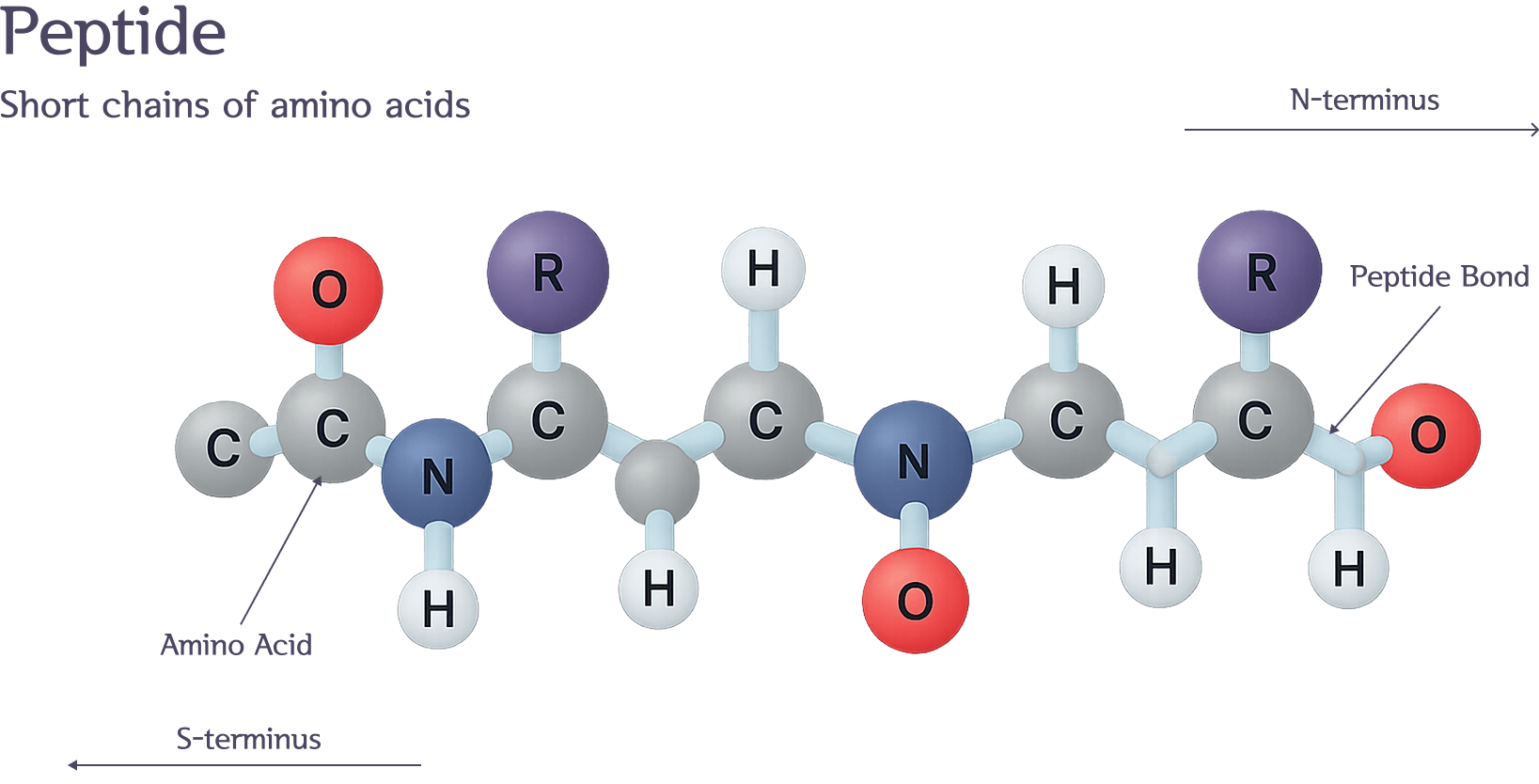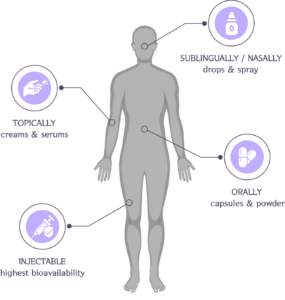 Peptides are trending in the health and fitness community, driven by the quest for optimal health, longevity and performance. But many people don’t really understand the role of peptides in human biology. To clear things up, we gathered some of the most relevant FAQs about peptides, and how you can leverage them to achieve your health, fitness, and wellness goals.
Peptides are trending in the health and fitness community, driven by the quest for optimal health, longevity and performance. But many people don’t really understand the role of peptides in human biology. To clear things up, we gathered some of the most relevant FAQs about peptides, and how you can leverage them to achieve your health, fitness, and wellness goals.
What exactly are peptides?
Peptides are short chains of about 2-50 amino acids, linked together by peptide bonds. Amino acids are the building blocks of protein, but peptide chains are shorter and less complex than proteins. Peptides work as signaling molecules in your body to regulate a broad range of biological processes such as hormone production, immune function, and communication between cells. Some well-known peptides include insulin, oxytocin, and collagen. Your body manufactures peptides by breaking down dietary proteins.

What are peptides used for?
Peptides have multiple clinical and commercial applications:
- Used in medicine to treat conditions like diabetes, cancer, and hormonal disorders. For example, GLP-1 agonists are peptides used to treat diabetes and obesity.
- Used cosmetically in anti-aging products to promote skin elasticity, encourage collagen production and reduce wrinkles.
- Used in research to study protein interactions for drug and vaccine development.
- Used as performance enhancers in sports and fitness, to promote muscle growth and recovery. For example, growth hormone-releasing peptides help to enhance the results of exercise and training.
Are peptides safe?
Your body makes peptides from dietary proteins, and those peptides are safely integrated into biological processes. Unregulated peptides like those used among bodybuilders and athletes can carry some risks, side effects, and unknown long-term effects. It is important that you get peptide therapy from a reliable source, to avoid contamination and unwanted side effects.
How are peptides administered?
The mode of peptide delivery varies, depending on their purpose. Cosmetic peptides are often included in creams and serums, and applied topically to promote healthy skin. Oral supplements are also common, but may lose some of their potency during digestion and have limited bioavailability. Certain peptides can be administered via nasal sprays or sublingual drops. The best route to ensure you benefit from the full potency of peptides is peptide injection therapy, specifically formulated for bioavailability.

What is the difference between peptides and steroids?
Peptides act as signaling molecules that stimulate natural processes such as hormone release. When broken down from dietary sources – especially animal products – your body distributes them wherever needed. When taken as supplements, peptides can be targeted to affect specific biological functions.
By contrast, steroids are used clinically for their strong anti-inflammatory and immune-suppressing effects. For example, corticosteroids are synthetic drugs that mimic the natural hormone cortisol. They are used to treat a broad range of conditions such as inflammatory joint and bowel conditions, asthma and respiratory conditions, skin conditions, and allergic reactions. Anabolic steroids are used by athletes and bodybuilders to boost testosterone production, to promote muscle growth.
What are some popular injectable peptides?
Popular injectable peptides for health and wellness include:
- Sermorelin, a peptide that stimulates the release of human growth hormone. HGH naturally supports growth and development during adolescence and early adulthood, but HGH levels drop dramatically after age 30. HGH drives metabolism, promotes cell regeneration, promotes and protects lean muscle mass, and supports healing and recovery.
- Tesamorelin, a peptide known to reduce visceral fat – the fat your body stores in your abdomen and vital organs. It also supports cardiovascular health and cognitive function, for improved quality of life.
- Ipamorelin and CJC-1295 are peptides that work together to promote metabolic health. CJC-1295 can boost growth hormone levels by 200-1000%, while Ipamorelin initiates the breakdown of fat for energy production. Together, ipamorelin and CJC-1295 combat aging, improve muscle tone and reduce unwanted body fat.
- GLP-1 agonists like semaglutide are used to combat insulin resistance in patients with type 2 diabetes, and to treat obesity.
Can peptide therapy have negative side effects?
Yes, some common unwanted side effects of peptide therapy include:
- Injection site reactions
- Nausea
- Headaches.
- Hormonal imbalances
- Allergic reactions
- Organ stress
Unregulated peptides can have unknown risks and side effects due to lack of testing. It is important to get peptide therapy from a reputable source with high standards of quality.
What are some dietary sources of peptides?
Foods that provide rich sources of bioavailable peptides include:
- Red meat
- Poultry
- Fish and seafood
- Eggs
- Dairy products
- Seaweed and algae
- Fermented foods like yogurt, kimchi and sauerkraut
- Bone broth
Is peptide therapy covered by insurance?
Non-prescription peptides are paid out-of-pocket.
Where can I get the best peptide therapy in NYC?
Busy New Yorkers are constantly on the go, with no time to waste on medical appointments or complicated therapies that fail to deliver results, and getting all the peptides you need from dietary sources can be a challenge. At Invita Wellness in Manhattan, we provide fast and efficient peptide injection therapy that delivers results. Our peptides are carefully formulated for quality and bioavailability, and delivered to you in a safe, relaxing, and professional clinical setting.
Peptide injection therapy is just one of many nutrient-based services on our menu. To learn more or make an appointment, contact Invita Wellness today, and optimize your health for immune support, high performance and longevity.
Get Personalized Peptide Therapy in NYC
contact InVita Wellness today
Book Now
456 Broadway 2 Floor, New York, NY 10013, USA
Resources
DeFoor, Mikalyn T., and Travis J. Dekker. “Injectable therapeutic peptides—an adjunct to regenerative medicine and sports performance?.” Arthroscopy: The Journal of Arthroscopic & Related Surgery 41.2 (2025): 150-152.
https://pubmed.ncbi.nlm.nih.gov/39265666/
Martínez-Villaluenga, Cristina, and Blanca Hernández-Ledesma. “Peptides for health benefits 2020.” International Journal of Molecular Sciences 23.12 (2022): 6699.
https://www.mdpi.com/1422-0067/23/12/6699
Wang, Lei, et al. “Therapeutic peptides: current applications and future directions.” Signal transduction and targeted therapy 7.1 (2022): 48.
https://www.nature.com/articles/s41392-022-00904-4